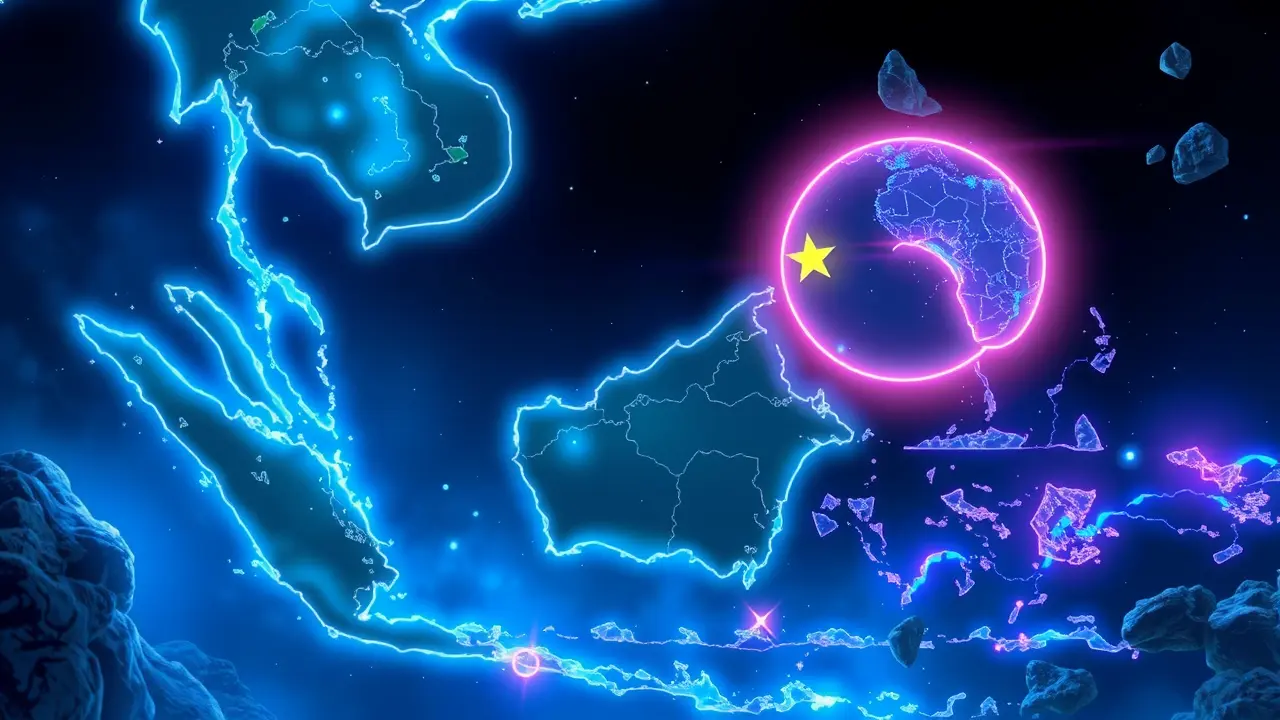
Politicssanctions & tradeGlobal Supply Chains
Southeast Asia's Role in the Global Rare Earth Race.
OL
Oliver Scott
21 hours ago7 min read
Southeast Asia is quietly emerging as a key arena in the global race for rare earth elements, the critical minerals powering everything from smartphones and electric vehicles to renewable energy systems and advanced weapons. As the world moves towards clean energy and digital transformation, control over these minerals has become central to geopolitical competition.While China still dominates global production and refining, countries such as Malaysia, Indonesia, and Vietnam find themselves thrust onto the front lines of a high-stakes resource war, a scenario fraught with both immense economic opportunity and significant political risk. The strategic calculus here is complex; these nations possess substantial untapped reserves—Vietnam holds the world's second-largest deposits, Indonesia has rich potential within its nickel laterites, and Malaysia is re-emerging as a refining hub following the controversial Lynas facility—but they are also navigating a diplomatic minefield between a hegemonic China and a Western alliance desperate to diversify supply chains away from Beijing's stranglehold.Consider the precedent of the 2010 Senkaku Islands incident, where China's embargo on rare earth exports to Japan sent global prices soaring and triggered a frantic search for alternatives, a stark lesson in supply chain vulnerability that today's tech and defense industries cannot afford to ignore. The current playbook involves a multi-pronged approach: Western governments and private equity are funneling billions into joint ventures, offering technical expertise in exchange for access, while simultaneously pushing for stringent environmental and governance standards to avoid the ecological catastrophes that have plagued mining in Inner Mongolia.However, the risk scenarios are manifold. A primary shock could emanate from Beijing itself, which might leverage its regional influence through infrastructure debt or naval posturing in the South China Sea to disrupt or co-opt these nascent supply chains, effectively maintaining its market dominance through indirect control.Alternatively, internal political instability in any of these Southeast Asian nations could lead to resource nationalism, contract renegotiations, or outright expropriation, spooking foreign investors and causing project delays just as demand is set to quintuple by 2030. The wildcard remains the environmental and social license to operate; the toxic legacy of radioactive thorium and uranium byproducts from rare earth processing is a public relations battle waiting to happen, and a single major spill or protest movement could halt operations, as seen previously in Malaysia, creating a supply shock that would ripple through the manufacturing of everything from Tesla batteries to F-35 fighter jets.In this high-risk environment, the countries that successfully balance the economic windfall with sustainable practices and astute geopolitical maneuvering will not just become commodity exporters; they will position themselves as indispensable nodes in the global tech ecosystem, wielding a form of soft power that could reshape regional alliances for decades to come. The race is on, and the stakes are nothing less than control over the foundational elements of the 21st-century economy.
#geopolitics
#rare earth elements
#Southeast Asia
#supply chain
#mining
#clean energy
#featured
Stay Informed. Act Smarter.
Get weekly highlights, major headlines, and expert insights — then put your knowledge to work in our live prediction markets.
© 2025 Outpoll Service LTD. All rights reserved.